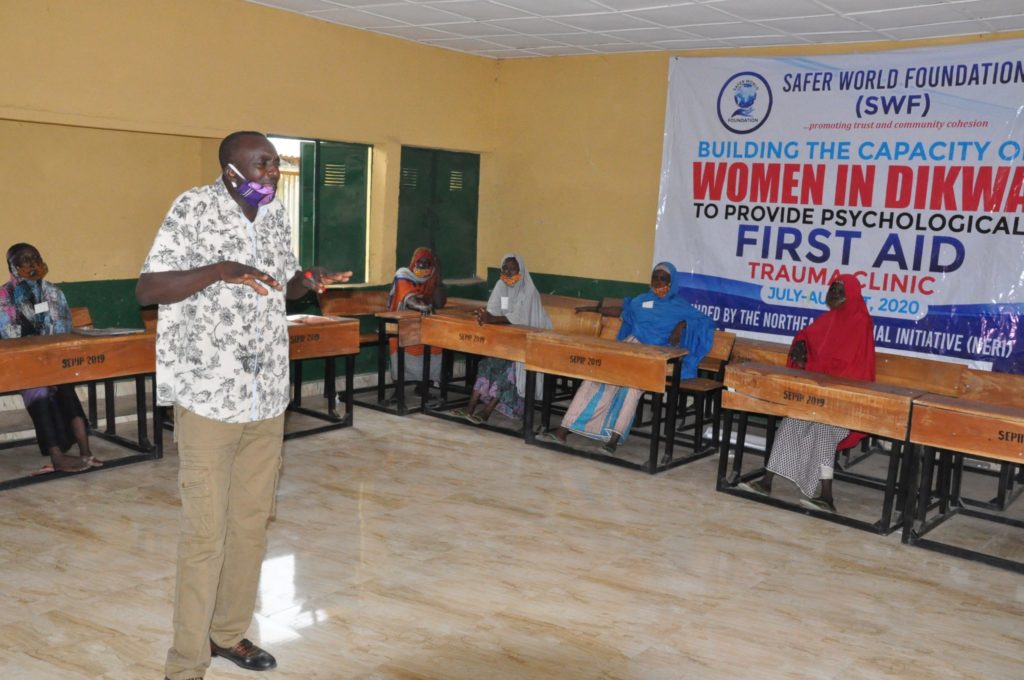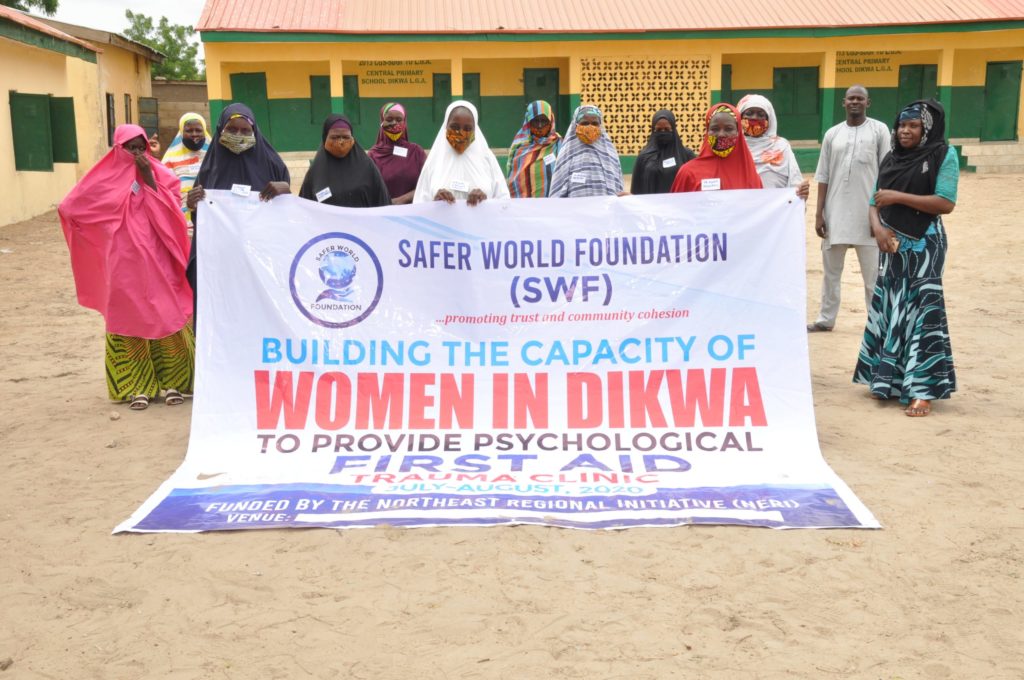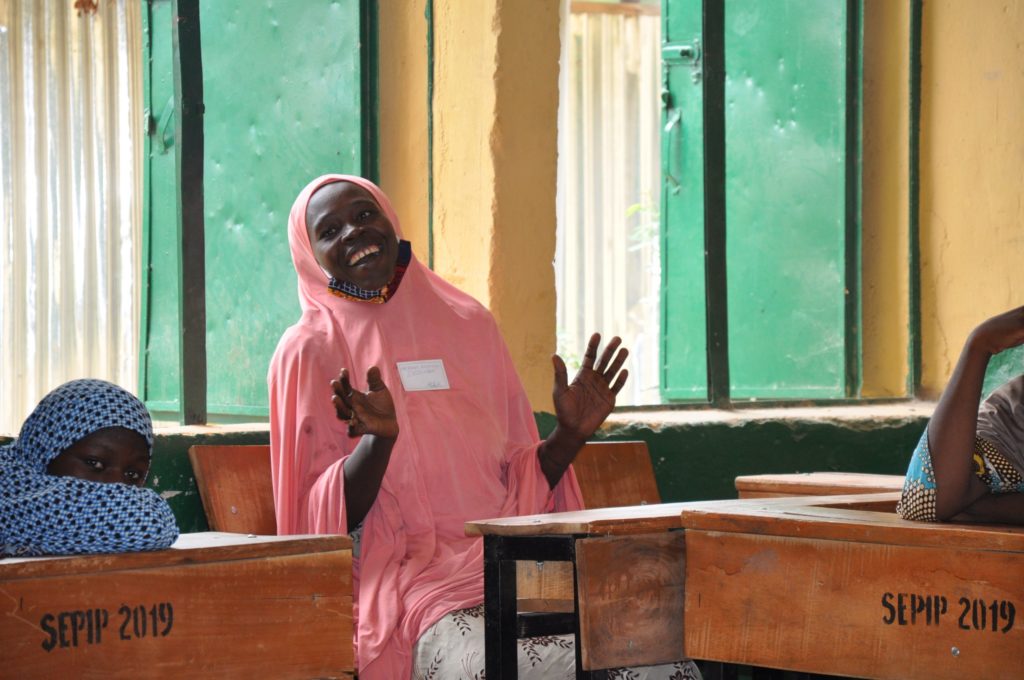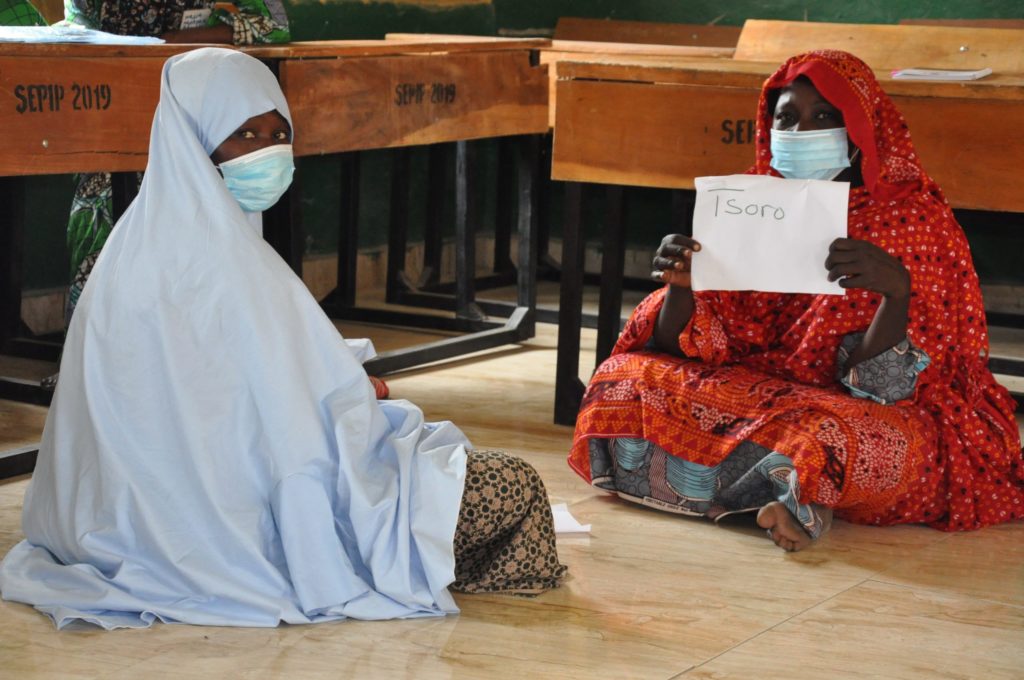
Project Title:
BUILDING THE CAPACITY OF WOMEN IN DIKWA TO PROVIDE PSYCHOLOGICAL FIRST AID
Supporting Partners:
USAID’s OTI/Creative Associates/North East Regional Initiative
PROJECT STATUS
The conflict in the Northeast has resulted in different degrees of losses as well as varying experiences of trauma. This has left deep-rooted hatred, mutual suspicion and mistrust. There are physical, emotional, psychological and socio-economic setbacks in these communities. A lot of women are left widowed while so many children have been orphaned in the process thereby increasing the burden on women. This is in addition to the unquantifiable material loss suffered by people living within these communities. The impact of the insurgency and loss on mental and physical health is great as people are traumatized to varying degrees. An encounter with victims of the insurgency, especially women, underscores the urgent need for an intervention on trauma awareness, consciousness, healing and resilience. This is the case of Dikwa, where the women are faced with a lot of untold hardships as most communities have persons who are victims of insurgent attack. All of these have short and long-term effects for the women within the communities in Dikwa and it has affected their capacity to function and be fulfilled.
To this end, Safer World Foundation with support from USAID’s OTI/Creative Associates/North East Regional Initiative provided trauma support to 150 women comprising of 15 women from each of the 10 Wards in Dikwa in six cohorts of 25 women. The aim was to create a community based Psycho-Social Support approach positioning them to respond well to the overwhelming cases of widespread trauma, strengthen inter-connection and reduce isolation through capacity building and mentorship sessions in their communities.
Primary objectives was to:
- To strengthen the capacity of 150 women in Dikwa to provide psycho-social support and become Healing and Listening Companions to other women in their community.
- To build the capacity of women in Dikwa to alleviate widespread psychological trauma among their peers.
- Strengthen the voice of women and girls.
SUCCESS STORIES
- Three of my sons joined Boko Haram years ago. This devastated me a lot and my blood pressure shot up and since then I have been taking drugs to stabilize myself. Since the second day of this training I haven’t taken any drugs; I eat well and sleep smoothly without any nightmares. I know it’s not an experience I can ever forget but these changes have indeed shown that my healing journey has begun.
- I have been deeply traumatized for some time now but I have learnt that holding onto past hurt only does more harm to my life.
- Before now, I used to be very quick to anger especially when I remember all the unfair experiences I’ve lived through. With this training I’ve learnt better ways to handle my anger in a way that I won’t myself and others.
- People used to point fingers at me, calling me the mother of a terrorist anywhere they see me; in the streets, at weddings or the market. This angered me so much and I stopped talking to a lot of them. I’ve learnt now that they too may have been traumatized by things people like my son have done to them and I am a reminder of those experiences.
- Whenever i hear a sound (loud) I get so frightened that I pee on my body. But since I came for this training, I have been able to manage this fear and it has stopped.
- Forgiveness is for oneself. I used to find it difficult to forgive those that have caused me pain. This training has thought me the importance of forgiveness for myself and those around me.
- I have learnt to manage my emotions better. This has helped me to relate better with my husband and children.
Participants providing psycho-social support and become Healing and Listening Companions to other women in their community.














